South East European Film Festival 2019 Roundup: Feature & Documentary Films
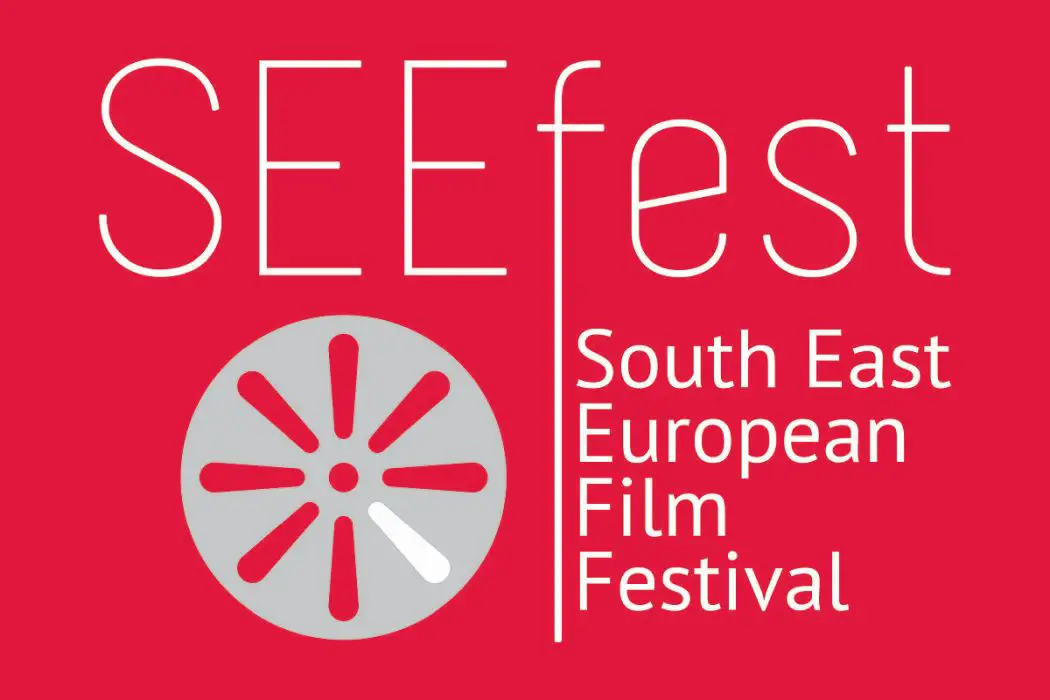
Janet is a writer based in Salt Lake City. A…
Leading with the theme of “audacity in cinema,” the 14th edition of the South East European Film Festival took flight in Los Angeles from May 1st to May 8th. It certainly showcased a bold and obscure mix of programming that challenged viewers’ thoughts and perceptions. With eclectic story techniques, the films focused on family dynamics, generational gaps, and political divides. These ultimately illustrated the essence of crossing borders as festival director Vera Mijojlić noted during closing night.
Heralding films from 18 countries in South East Europe, the festival wasn’t afraid to show complicated intricacies of the human experience. Not to mention, intricacies that grew from political and social strain. I caught three of their feature films, I Act, I Am, Deep Cuts, and Together along with a documentary, ReGeneration.
All of these films reflect upon personal, social and political divides that paradoxically portray universal experiences. Although there were a few problematic elements in some of them, they opened up the doors to South East European cinema – a lovely and rare world that we don’t always have the privilege of stepping into.
I Act, I Am (Miroslav Mandić – Slovenia)
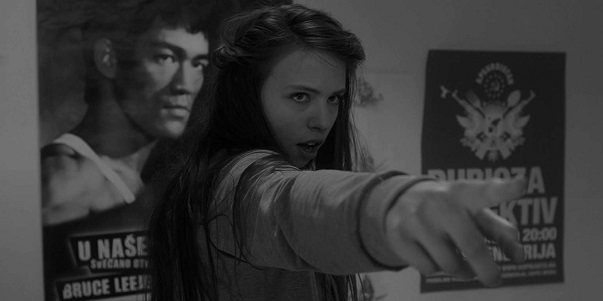
“Ownership is a relative thing,” barks Lina, a young actress and student who has stolen a car for the sake of art.
Three actors test societal and personal boundaries in this black and white film from from Bosnia and Herzegovina, Slovenia, and Croatia. Directed by Miroslav Mandić, this black and white film humorously and methodically tells three tales – three actors who play the roles of their characters in their real lives.
Young Lina (Luna Zimic Mijovic) plays a thief, Niko plays a homeless man (Gregor Zorc), and Luka (Goran Bogdan) plays a man hopelessly and passionately in love with his co-star. They all, in their own circumstances, become emotionally withdrawn from reality that they transform into their characters. As they waver in and out of reality, realizations form, questions are asked, and societal boundaries are tested.
I felt as though the film was satirical at times, jabbing at the artist life. The ways in which I Act, I Am fleshes out its cinematography, pace, and character development alludes to the grandiose feats that actors take to perfect their craft. Looking at the film as a whole, it’s an inception of actor within actor and story within story. It makes for a pretentious and entertaining look into folks who lose sight of themselves for the sake of art.
These progressions have stifling effects on their loved ones who tragically suffer the consequences. As their partners fail to draw the line between reality and the arts, they fuel a lot of confusion, sadness, and frustration. It’s a quiet, ironic, and charming look at how identity fuels the way we interpret our environment.
Mandić opts for subtlety and recklessness. We get two ends of the spectrum – nothing in between. As a result, it’s a bizarre experience that we, as the audience, take alongside the characters who unapologetically walk into unpredictable situations.
Fittingly, we don’t know what’s real and what isn’t – the film doesn’t give us enough time to get to know the characters, which makes for a rather clever writing technique, as we aren’t given the benefit of knowing the intentions behind their actions. Sure, it’s partly due to the fact that they’re deeply committed to their craft, yet there’s an unexplainable shift that keeps us on our toes. It’s a temperamental ride that’s worth getting on.
Black and white was a good choice for this film. Its stillness and attractiveness is undeniably intriguing. With the unusual camera shot when Lina is sitting in the bus (probably one of my favorite and memorable shots in the festival) and the many cafe scenes, the film took me back to French New Wave films. It’s the type of aura that this film needed in order to illustrate the frustratingly complex character study and pretentious artistry.
Deep Cuts (Filip Mojzes, Filip Peruzovic, Dubravka Turic – Croatia)
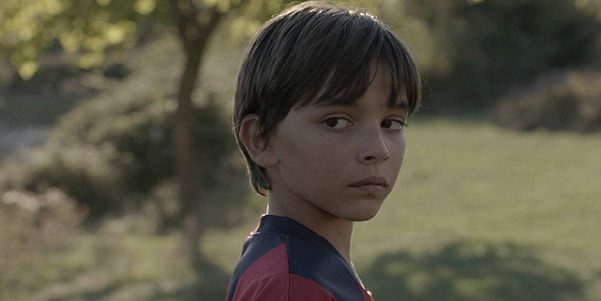
This one was a series of bizarre stories and characters. I was waiting for all hell to break loose (this was probably my anxiety speaking), but the film is careful not to. Each story saves face, as secrets are kept and curiosity blooms.
Deep Cuts is a three-story anthology from Croatia that explores family dynamics and violence. Whether it focuses on loss (“Cherries”), bullying (“White Bone Death”), or domestic abuse (“Objects that Sink”), the film leaves many things intentionally left unsaid in dire circumstances. As a result, it becomes an examination of how we approach family and ourselves when trust and integrity stand on a very thin line.
What’s interesting about this film is that each story is from a different director – Dubravka Turic (“Cherries”), Filip Mojzes (“White Bone Death”), and Filip Peruzovic (“Objects that Sink”). Each of their stories carry uncomfortable and tragic events with a still tension – a tension that’s sewn with peculiar and burning questions. It surely has us thinking and shocked at times, but whether they each manage to sustain such emotions is questionable.
Out of the three, “White Bone Death” was probably the most captivating and chilling. Two young sisters engage their neighbor in a game called White Bone Death. As you can tell by the name, it’s not your rainbows and flowers kind of game. Things quickly get dark and violent. And what makes it even more harrowing is the way that their parents approach the situation. It could have easily turned into a psychological thriller or horror film if it were granted more time. Weird kids with semi-weird parents who all hold a secret; they’re the creepy family next door, and when they drive off in the end, we wonder what the hell is wrong with them.
The other two stories follow the same style of drawing out tragedy with subtlety. They’re held together with mysterious characters and events. The problem was that “Cherries” and “Objects that Sink” felt a little too vague. They didn’t give us enough sustenance to leave with a flurry of questions and thoughts. Although we understand what’s going on, the consequences or “pay off” in the end feels all too dry.
For example, “Cherries” is told from the perspective of a boy whose older brother is sent away during the summer to their uncle’s house. The naivety that he has over all the tension surrounding the family is gripping and endearing. But by the end, when tragedy strikes, we aren’t really given anything substantial to take away; it quickly dissipates. Instead of feeling the weight of all the grief and confusion, we’re left feeling rather empty. It’s missing an empathy that the story deserves.
Even in “Objects that Sink”, a film where a father is wary of her daughter’s new bruise on her face, the story frequently jumps back and forth to various old footage and characters throughout the film. The film gets a bit too carried away through them, that they ultimately lose touch with the central focus of the story. Instead of contributing a sense of loss, the footage along with scenes with other family members only seem to stray film elsewhere.
It’s not to say these stories require answers or us to be left with deep emotions, but it’s the fact that the Deep Cuts at times, fails to provide the right kind of breadcrumbs. It seemed as though Turic and Peruzovic were pouring too much into their storytelling techniques that they overlooked character elements that needed more fine tuning.
Despite the issues, the film, as a whole portray, raw and terrifying depictions of how issues are dealt with amongst loved ones. How things quickly get brushed under the rug and how people can get too comfortable with pain and violence. It’s a rare and bold foray into unspoken family dynamics.
Together (Marko Santic – Slovenia)
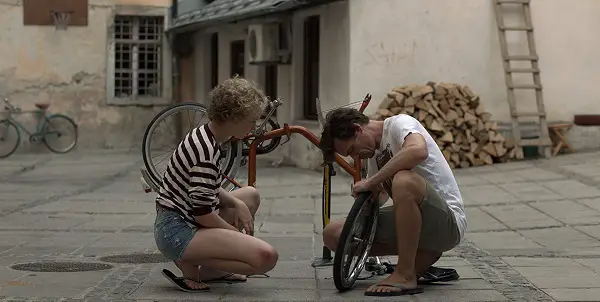
This film was probably the most conventional one out of the bunch story structure wise, and it was probably my least favorite. It wasn’t because of its traditional flow, but because it felt like a soap opera. It felt like something that was initially meant to be a TV series but was instead bunched together into an hour and half film.
Together follows Luka (Primoz Bezjak) who, upon the death of his partner, Matej (Jernej Sugman), fights for custody over Matej’s daughter, Mia (Nadja Debeljak). Conflicting family dynamics not only leaves Luka facing prejudice from Matej’s family, but new responsibilities being Mia’s guardian.
This Romanian film by director Marko Santic unfortunately lacks a meaningful character arc when it comes to its protagonist. And it’s largely due to the fact that a lot goes on in the story. Inundated with events and details, the film can’t hold together anything concrete. It just spills more unnecessary scenes to the point where we lose focus on Luka and the story itself. From a nosy neighbor, to days in court, to Mia’s rebellious excursions, these only led the film astray. Because it was all over the place, the story couldn’t focus on things that were relevant. As a result, it was hard to care for them.
Some peculiar camera and editing techniques were used in the film. What probably irked me the most was the way the film milked Bezjak‘s looks. The opening credits scene was like a commercial. It’s slo-mo with the camera romantically following him as walks through the city streets. It was puzzling to say the least. There are several other scenes that merely showcase his physique such as when he’s lying on the beach or when he’s walking to his late partner’s funeral. Not only did it feel out of place, but it contributed nothing towards the story and his character.
Even during the scenes in court with Mia’s grandparents, which should’ve been one of the most essential parts, the film decides to blaze through them by turning it into montage scenes with cheesy music playing over them. The film certainly didn’t do those scenes justice – they felt like TV episodes.
Several elements in the film had the potential for Together to be strong film; yet, the story traverses too so roads so that it struggles to find its center.
ReGeneration (Emir Kapetanović – Bosnia and Herzegovina)
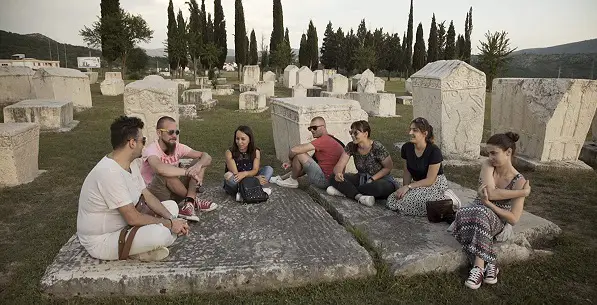
A fitting choice for closing night, ReGeneration is a documentary that follows the conflicting emotions and experiences of Bosnia and Herzegovina’s youth. Directed by Emir Kapetanović, it features ten “reconciliation ambassadors” – young men and women from some of the country’s most divided cities who are on a mission to learn more about the Bosnian War and how they might carve out a hopeful future for their generation.
We’re given a look at personal anecdotes that illustrate the war and genocide that took place in the early 1990s when the ambassadors were either too young to remember or weren’t even born yet. It all provides a look into how the country’s youth perceive the deep and tragic divides that have been passed down from their parent’s generation. Also, it’s a look at how even after 25 years, it’s still very much a divided country, as these young individuals grew up in homogeneous communities.
They speak with war veterans, politicians, and concentration camp survivors who witnessed violence inflicted upon their families and people of their community. They explore various religious practices that opens the door to conversations around ethnic identity along with politics. As they spend time with one another, they learn that they’re all bound by the same goal to achieve reconciliation in their lifetime and heal the shifts and divides as a result of the war.
I wish this documentary focused more on the ambassadors involved in this film. I felt that too often, they focused on interviewing folks who were part of the war that their stories were cut short. As a film focusing on the new generation, it would have been more relevant to dig deeper into their perceptions upon learning more about the effects of the war. I would’ve loved to see them share any preconceived notions they might have had, and how meeting other folks like themselves from their divided country changed their perceptions.
For instance, there was one scene where one of the ambassadors described her experience attending the ReGeneration summit. She explained the challenges in relating to some of the other attendees, as they didn’t experience family loss like she has. Thus, it would have been interesting to see how despite being part of the same generation, there are in fact, divides and conflicts amongst themselves, as they try to navigate this journey of reconciliation.
Despite these holes, this documentary was an interesting look at what youth are facing as a result of one of South East Europe’s most tragic events in history. It was eye opening to see what my generation was facing across the globe in a nation that I don’t often find myself coming across. Very much how discrimination and divides exists here in the States, it was interesting to see how these issues are fleshed out in Bosnia and Herzegovina.
Conclusion: SEEFest Lights Conflict With Creativity
With their eclectic programming, SEEFest pleasantly brought to light the disparate tastes of South East Europe. These differentiating and conflicting tastes illustrate not only diversity in arts but how conflicting perceptions ultimately brew creativity. And this creativity certainly bloomed during my time watching these films.
Themes of family, politics, and the human condition portrayed diversity and risk in filmmaking. Although some landing better than others, they were all an innovative group of films that ultimately challenged my mind. Consider attending SEEFest next year to unravel your mind in cinema you’ll most likely be unable to find elsewhere. It was especially nice that this festival took place near my hometown in Los Angeles, as it truly reinstated L.A.’s diverse and vibrant culture.
What are some films that challenged your perception and ways of thinking? Please share by commenting below.
The SEEFest took place in Los Angeles from May 1st to May 8th. I Act, I Am, Deep Cuts, and Together were screened at the Laemmle Music Hall and ReGeneration was screened at the Writers Guild Theater.
Does content like this matter to you?
Become a Member and support film journalism. Unlock access to all of Film Inquiry`s great articles. Join a community of like-minded readers who are passionate about cinema - get access to our private members Network, give back to independent filmmakers, and more.
Janet is a writer based in Salt Lake City. A strong advocate for underrepresented voices, she believes cinema is a transformative medium that challenges assumptions and creates diverse conversations.













